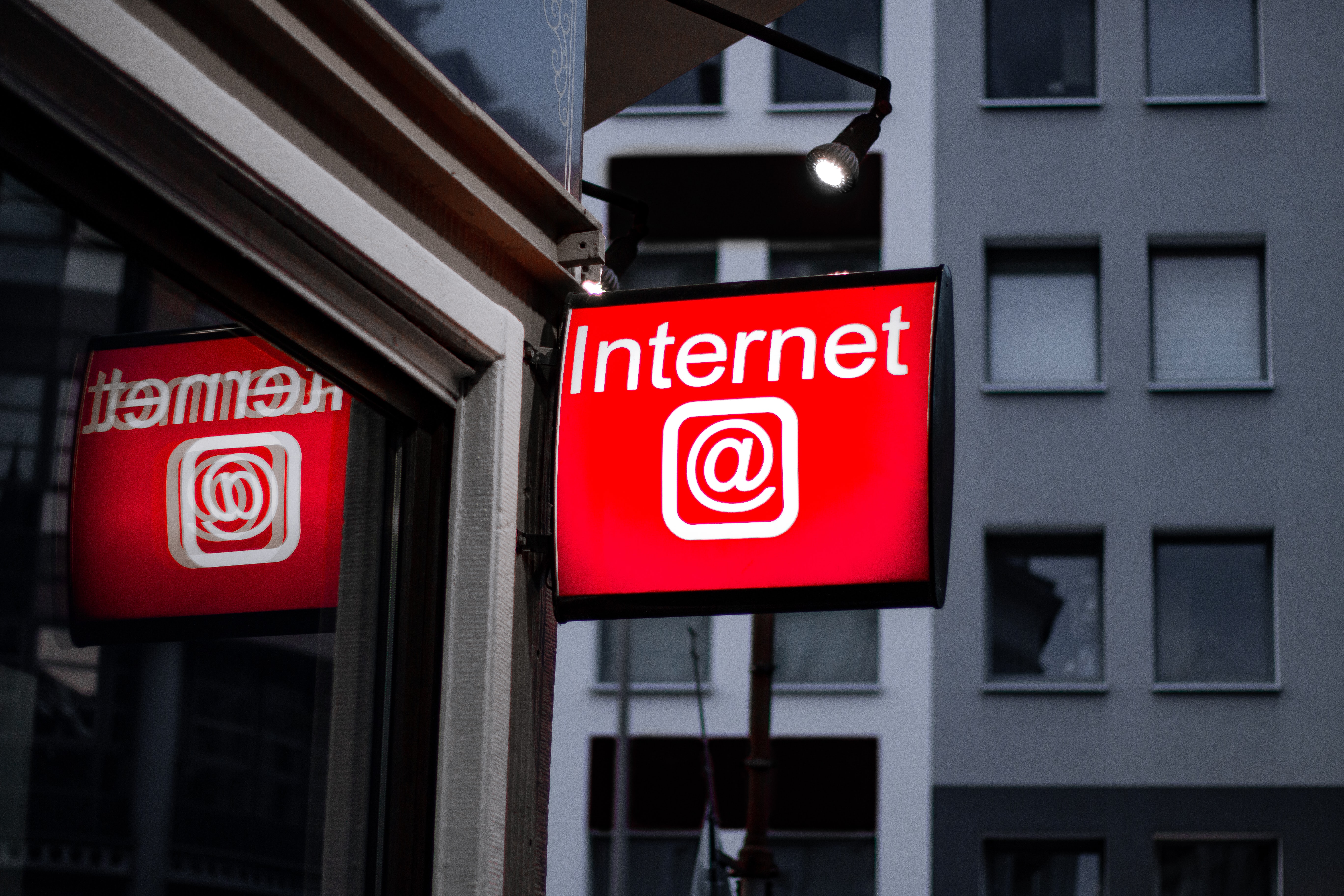How the Difference Between Wired and Wireless Affects your Internet Experience

Thanks to Leon Seibert for sharing their work on Unsplash.
If you are working from home or simply streaming your favorite programming, you want to have the best streaming experience possible. An internet connection that has an ever-present lag or is choppy can be irritating. But what causes an internet connection to repeatedly give you the all too familiar circular buffering signal? Well, the issue lies in how you are connecting to the internet. It is the difference between the wired and wireless internet connection that affects your internet experience.
What is a Wired Internet Connection?
When you have internet service, the wired connection that is coming into the home is attached to your router. From there, the signal does one of two things. The first option is that a signal becomes a wired connection via an ethernet cable from the router to a device like a desktop computer or a television receiver. With a direct connection, there is no slowing of speed; the speed you have signed up for should be the speed you receive.
What is a Wireless Internet Connection?
The second option from your internet service provider is wireless internet. The wired connection ends at your router. From here, the signal is transmitted through the air to the devices you have in your home that have the ability to receive Wi-Fi signals. For example cell phones, tablets, gaming devices, personal assistants, home security systems, and other smart devices. These devices use a password to securely log into the home’s network.
While the U.S. has yet to implement these measures, but they are keeping a close watch on domestic usage. However, internet service providers in America have done their share of activity. Yet, their actions have been more to free customers to use their internet than to restrict.
- Removal of Data Caps – Allowing users to go above package limits with no charges.
- Opening up Wi-Fi Hotspots – Wireless providers have opened or upgraded data limits of their Wi-Fi hotspots to customers and non-customers free of charge.
- Upgrade of Service – Internet Service Providers like GiGstreem have upgraded their customers to higher tiers to compensate for allowances of speed and usage and to provide excellent customer service.
How Wi-Fi Affects Your Connection Speed?
Wired connections are by far the way to go for speed and security. The main difference between wired and wireless internet is the speed when you remove the connecting factor. When you are using your router’s wireless signal, you have a greater opportunity to experience lag, choppy streaming, or dropped signals altogether. The primary reasons for such losses are:
- How the system is built. Wired connections will always be faster. It is how they are made. That, paired with the maximum standards at which a Wi-Fi signal can perform. Just as some car engines can only go 65 MPH and others can exceed 100 MPH, Wi-Fi signals have their limits as to the internet speeds they can travel, regardless of how powerful the router is.
- Your distance from the router can affect internet speeds. If you have your router in the bedroom, but you are in the downstairs living room, then you can expect a lowering of the actual speed you will receive. Think of a water hose with a nozzle on it. If you are up against it and you pull the trigger, you get wet, and it will sting. But if you stand 50 feet back, you may still get hit with the water, but the pressure of that water is greatly reduced. The same goes for that wireless internet signal coming from your router; you get a signal, but the stream is slower.
- The number of users on a wireless network slow speeds. Another factor that you may not consider is the number of devices that are connected to your router. This is a huge thing to consider when shopping around for internet service. The list mentioned above gets longer with all the connected devices that are in homes now, and when a home office is added to the mix, the list just grows. Homes have grown to include much more than cellular devices. The more devices, the more bandwidth gets eaten up, and the slower your wireless connection becomes.
- Network clutter can slow internet speed. This may be getting a little technical, but as you surf and download and visit sites, certain hidden areas of your devices get cluttered. It’s called the cache. All devices have this little area. When this area gets full, it can slow your device down. Sometimes they need to be cleared to help with internet connection speed. The server can get cluttered as well—this can happen on the internet service provider end.
- Other factors with Wi-Fi: Power outages, network updates, and system upgrades can cause conflicts within the network and cause your internet connection speed to slow. This is often remedied by a simple reconfiguration but will usually require a phone call to your internet company to adjust on their end to ensure that all the devices are talking to each other correctly.
GiGstreem Provides a Better Wi-Fi Internet Experience
When you want to have the best of both worlds, you need an internet service provider that understands the difference between wired and wireless internet. A company that gives you the best connection from the moment it enters your home. If you have a weak signal coming in, then your wireless connection will just go downhill from there.
GiGstreem is an internet service provider that gives you a strong signal from the get-go. We specialize in multi-family communities and provide a Hybrid Micro/Fiber internet connection that gives our customers solid wired internet access as well as the best possible wireless experience.
GiGstreem Micro/Fiber is better because we have our own dedicated lines. They are not shared lines like other internet providers. This lowers the number of “hops” it takes to reach the internet and increases the speed of our already lightning-fast internet speed. This type of connection delivers lower latency. This means no buffering when you are trying to stream must-watch programs, playing your favorite games, or downloading large files—and carries over into your wireless experience through delivering the fastest wired internet possible.
Here is a bit more about what GiGstreem wireless customers receive:
- 1000x Faster – 1 GiG the fastest speed out there, and GiGstreem offers it at a lower cost than the competition.
- Plug and Play Hardware – Included with no hidden costs or additional fees.
- Symmetrical Speeds – Upload and download speeds are identical. This is how our wireless maintains its quality. Symmetrical speeds prevent lagging and buffering, giving you a super-fast internet connection.
- Always On – We provide the most reliable service on the market. Our own lines provide a trusted, always-on service.
- No Data Caps – Perfect for video streaming, gaming, and large file downloading.
- No Throttling – There are no ‘peak hours’ or limits that would cause a diminished speed. Nor will we slow speed for competitor’s content.
- No Forced Bundles – We do not force you to purchase bundles you will never use.
- No Surprise Price Increases – Your price will not increase unless you choose to upgrade your service.
- Privacy Taken Seriously – We do not store or sell your personal information. Your privacy is important to us.
We serve multi-housing communities in New York, Maryland, DC/Virginia, South Carolina, and Florida. To learn more about how GiGstreem can help you get the most out of your Wi-Fi connection, give us a call or send us an email. Contact one of our experts today at 800-747-1830. For your convenience, we are available 24/7.
